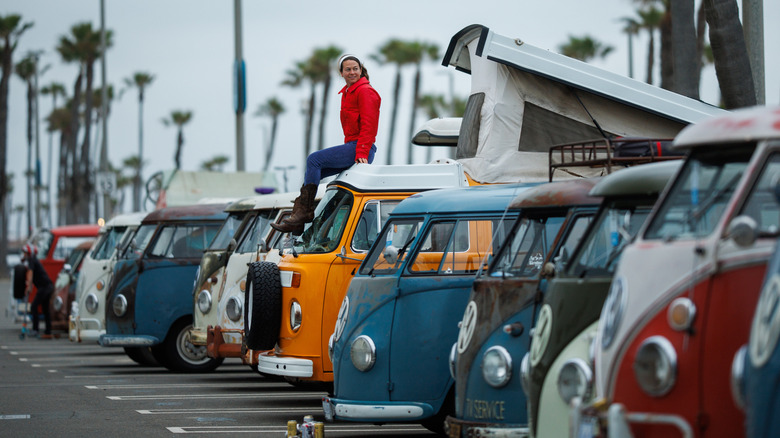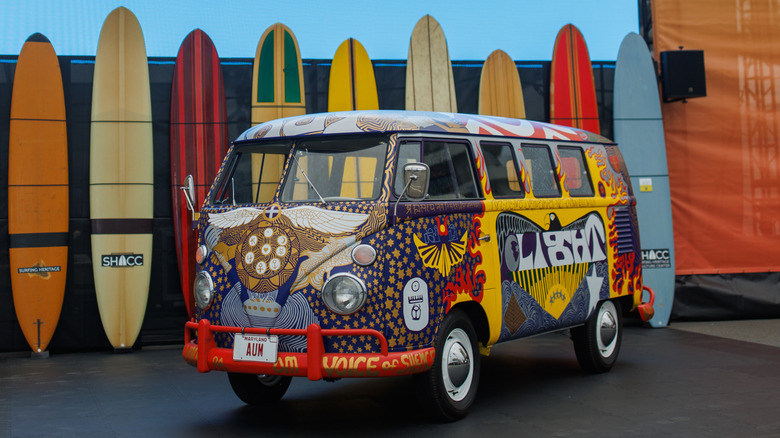Why Was The Volkswagen Bus Discontinued?
The Volkswagen Bus was first produced in March 1950. The original VW bus was based on a modified iconic VW Beetle, known as the Plattenwagen, that was used to haul auto parts around the Volkswagen factory. The VW Bus was the first van ever produced. The first generation of VW Buses had rear-mounted, 30-horsepower flat-four, air-cooled engines and came in passenger, cargo, and pickup versions — until the infamous 1964 "Chicken Tax" placed a 25% tariff on VW light trucks, leading to cessation of VW work truck imports in the 1970s.
The Volkswagen Bus, the ultimate road trip machine, would progress through four generations, which are known as the T1 (the original version with the split windshield), the T2 (a modernized version with a larger, one-piece windshield), the T3 (which saw the Volkswagen Bus' transition from air-cooled to water-cooled engines), and the T4 (known here as the Eurovan, which had water-cooled engines mounted in the front and no longer in the rear).
This takes us up to 2003, when T4 production came to an end. There would be no more VW Buses for the U.S. market. This also coincided with the shrinking of the minivan segment. But the VW bus has continued in production to the present day, with T5, T6, and T7 models produced for other markets around the world. An updated version of the older T2 VW bus continued to be produced in Brazil until December of 2013, where it sold well but was ultimately unable to meet Brazil's new safety requirements for airbags and anti-lock brakes.
The Volkswagen bus became a symbol of the counterculture in the U.S.
The passenger version of the Volkswagen bus remained here and evolved through the years, with the T1 and T2 becoming counterculture symbols in the 1960s and 1970s. The VW bus was seen as an eco-friendlier alternative to Detroit's heavy, gas-guzzling behemoths and a practical way to consume less. According to the Smithsonian Institution's curator Roger White, driving a VW bus "...was a way of thumbing their noses at the establishment." The VW bus, painted with flowers, peace signs, and psychedelic images, became inextricably linked to the hippie culture of the time, particularly to followers of the Grateful Dead rock band.
The Volkswagen bus also became a symbol of the anti-Vietnam war movement during those two turbulent decades. It was used to transport demonstrators to rallies and protests around the country. Civil rights advocates even used Volkswagen buses to move school-age kids during the days of desegregation in the southern United States. From 1950 to 2003, a total of almost one million Volkswagen buses were sold in the U.S. Today, the 2025 ID.Buzz, an electric-powered evolution of the VW bus, has returned to our shores to provide more Volkswagen bus goodness to Americans.

